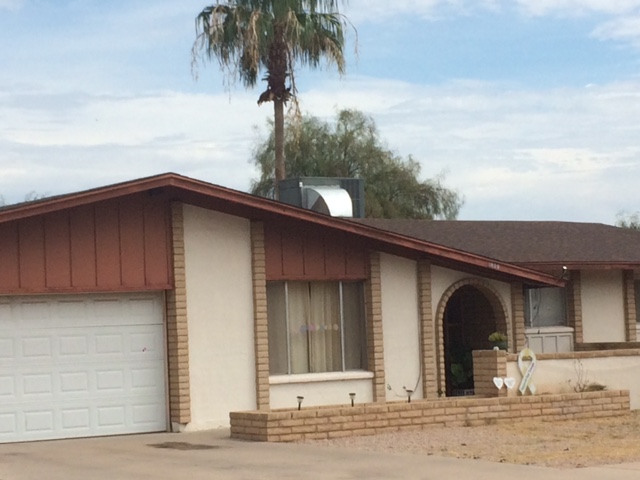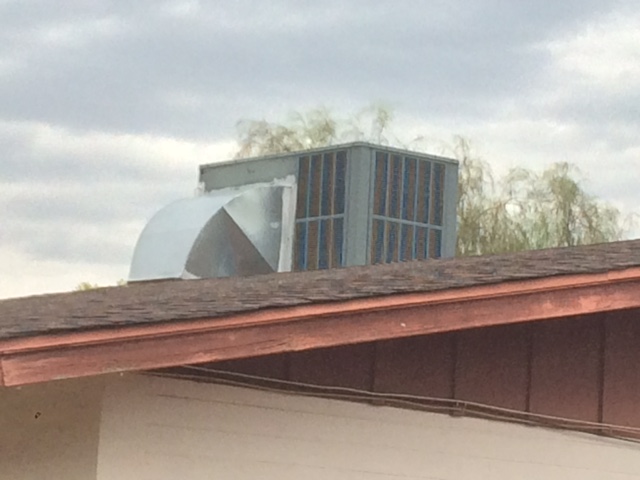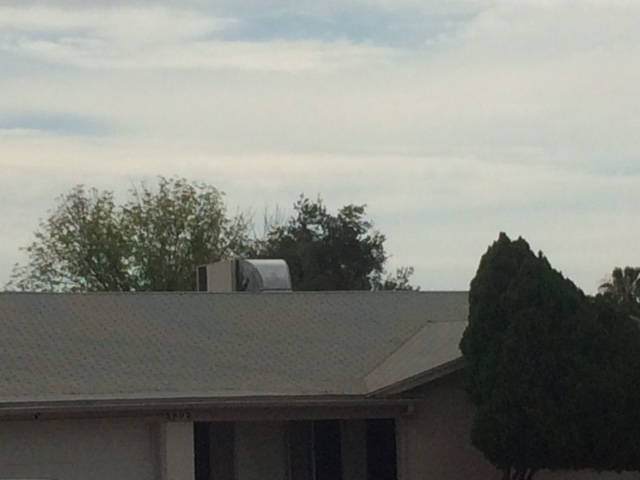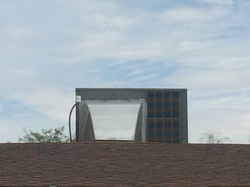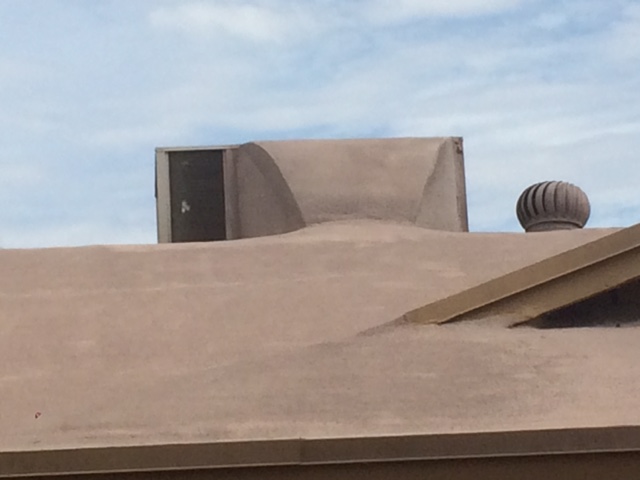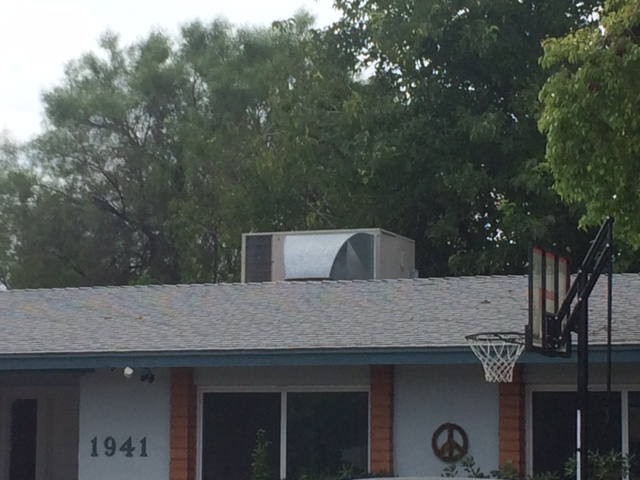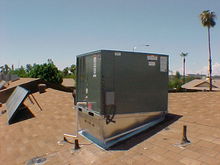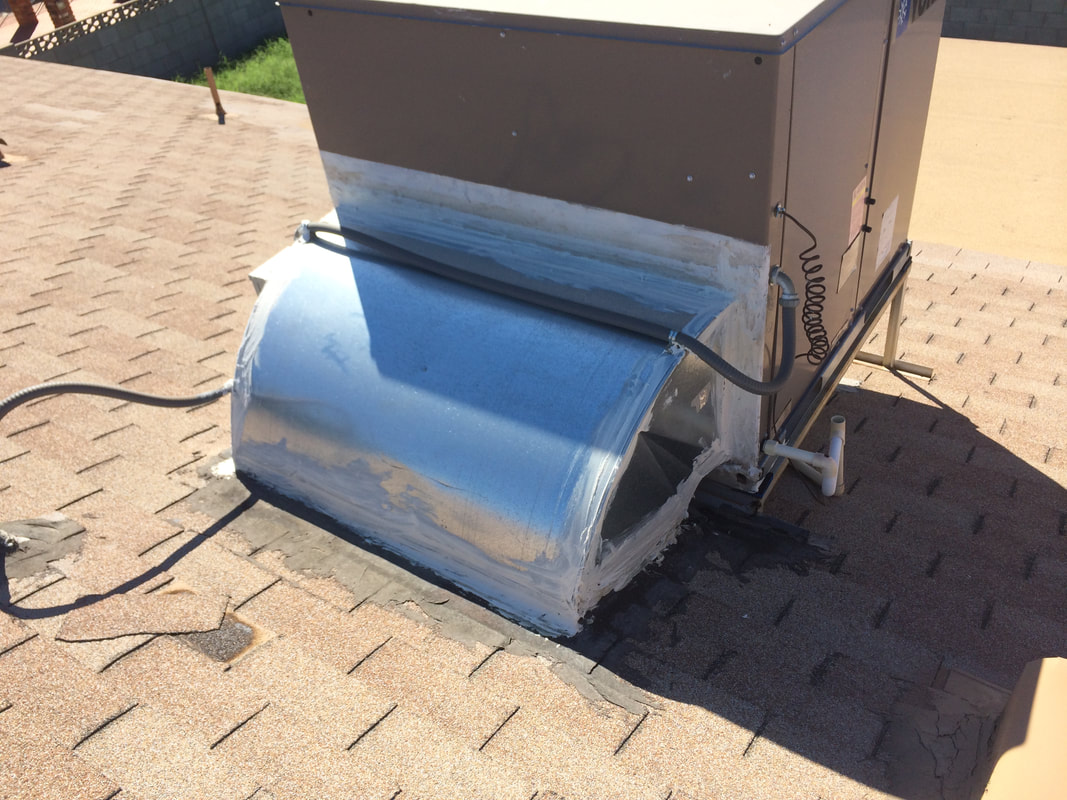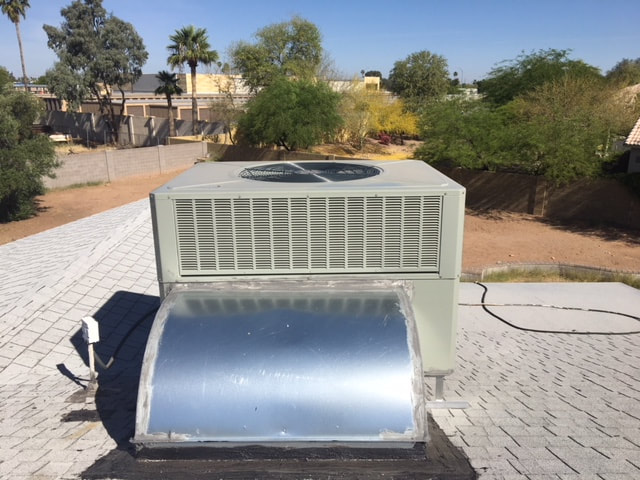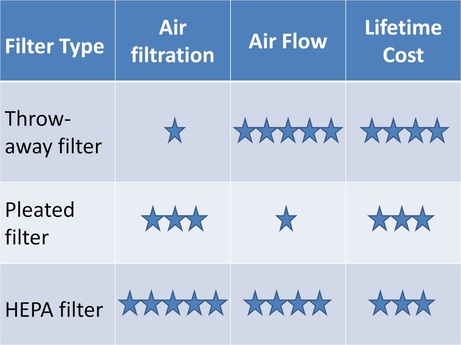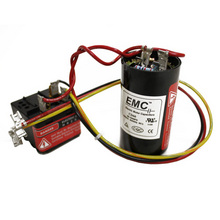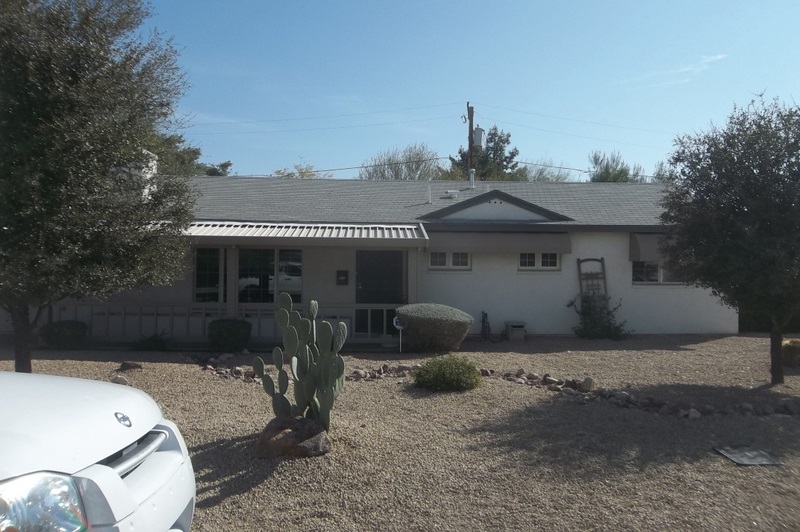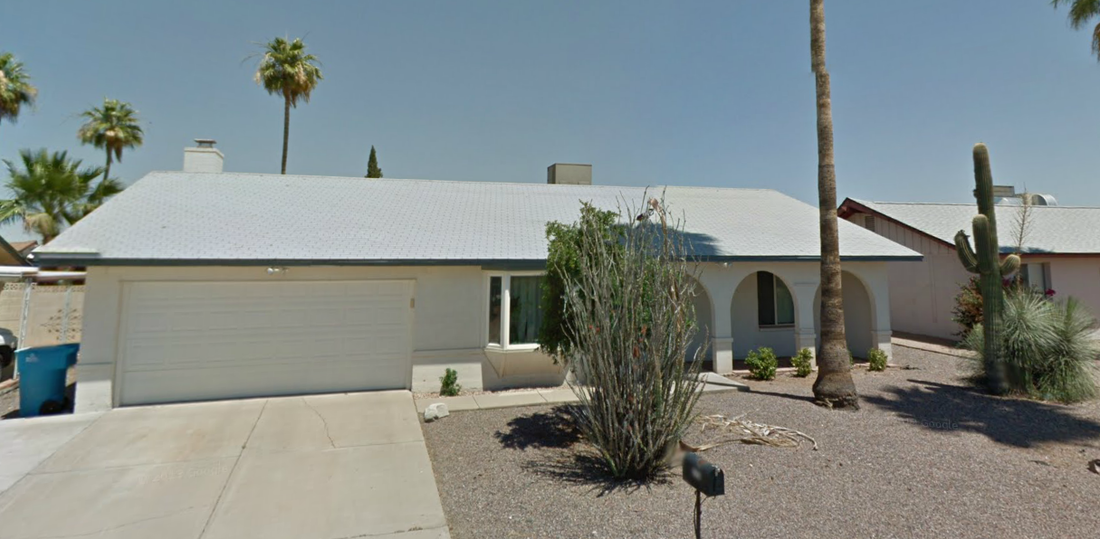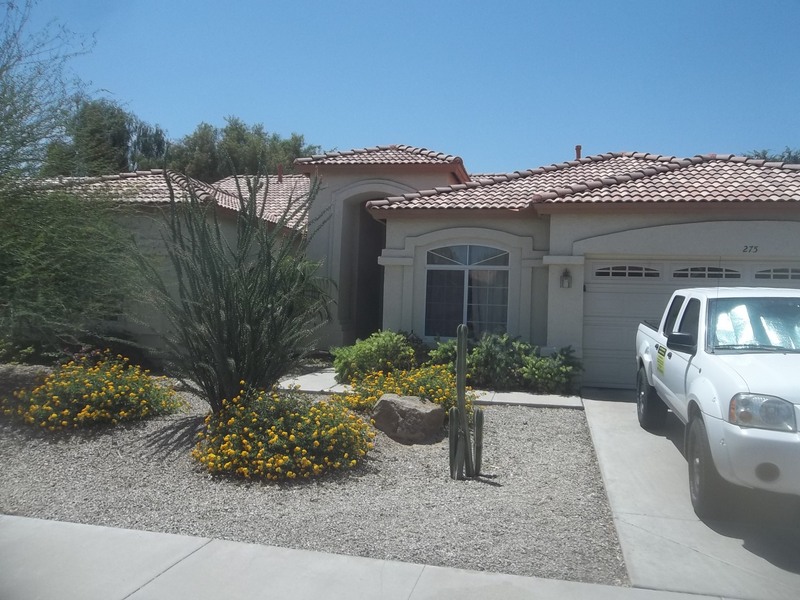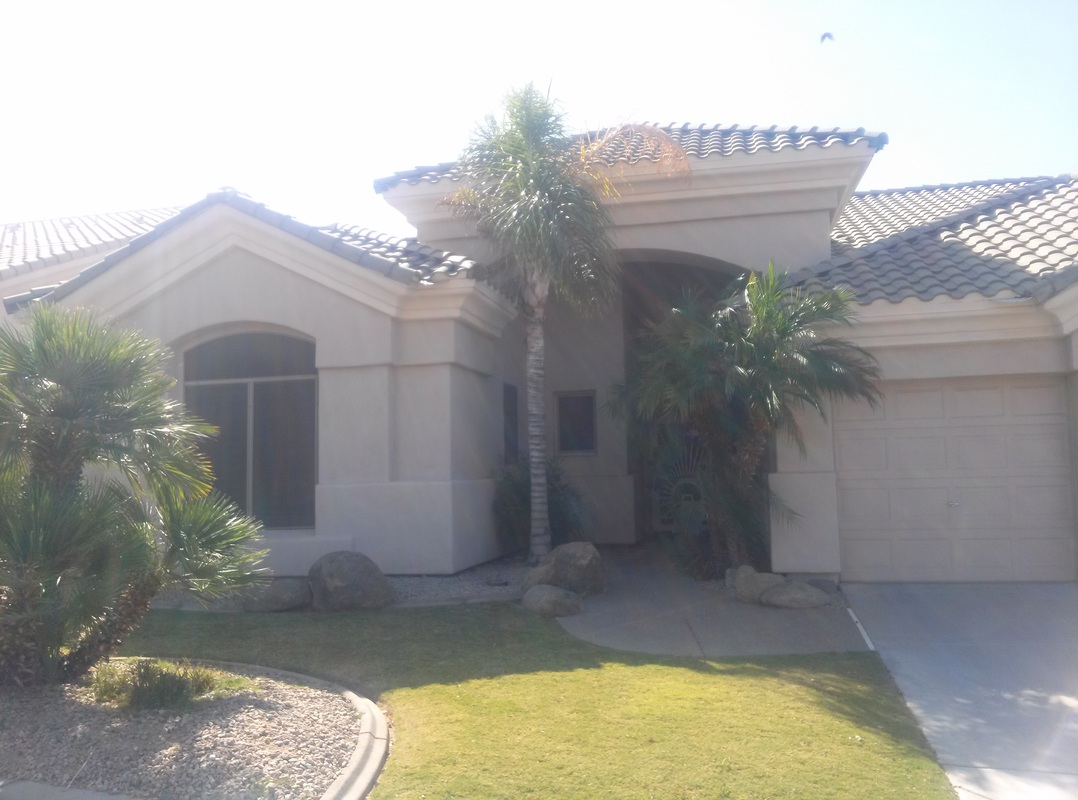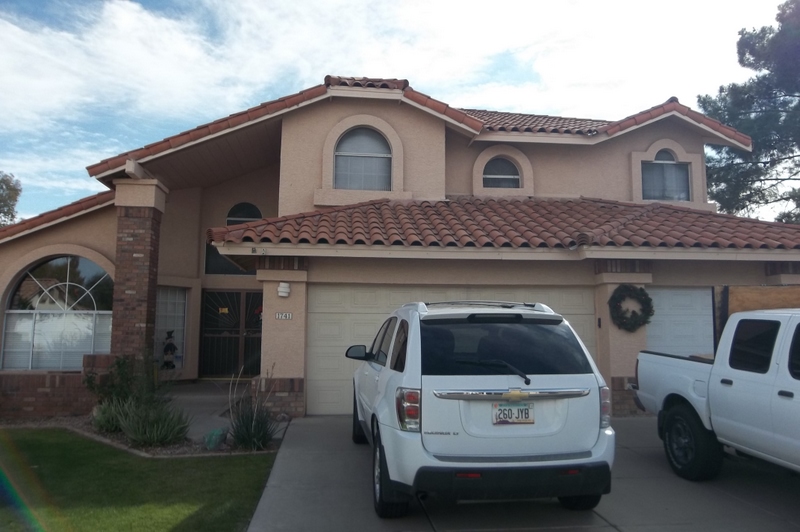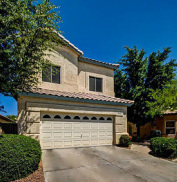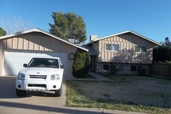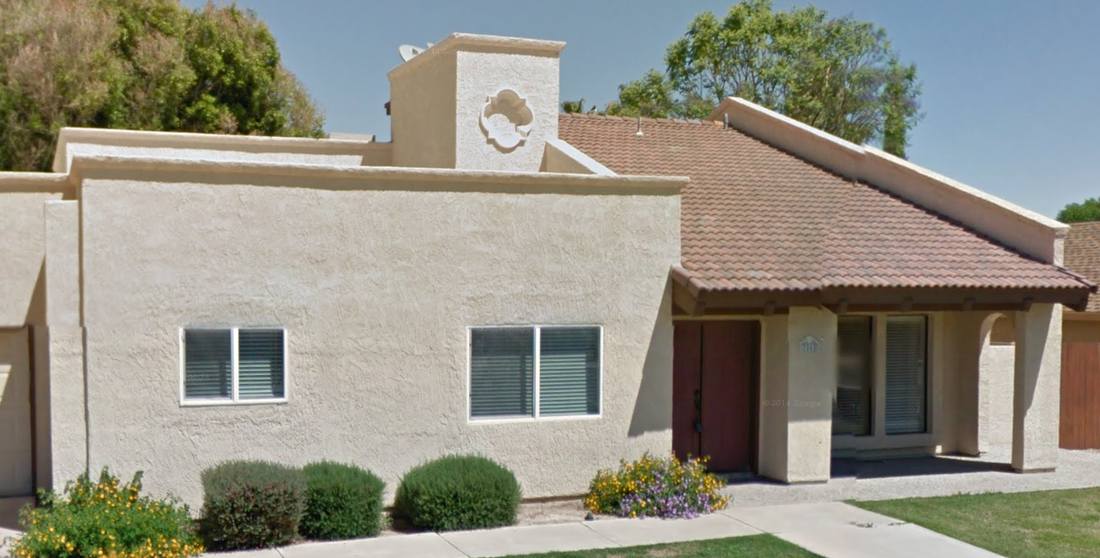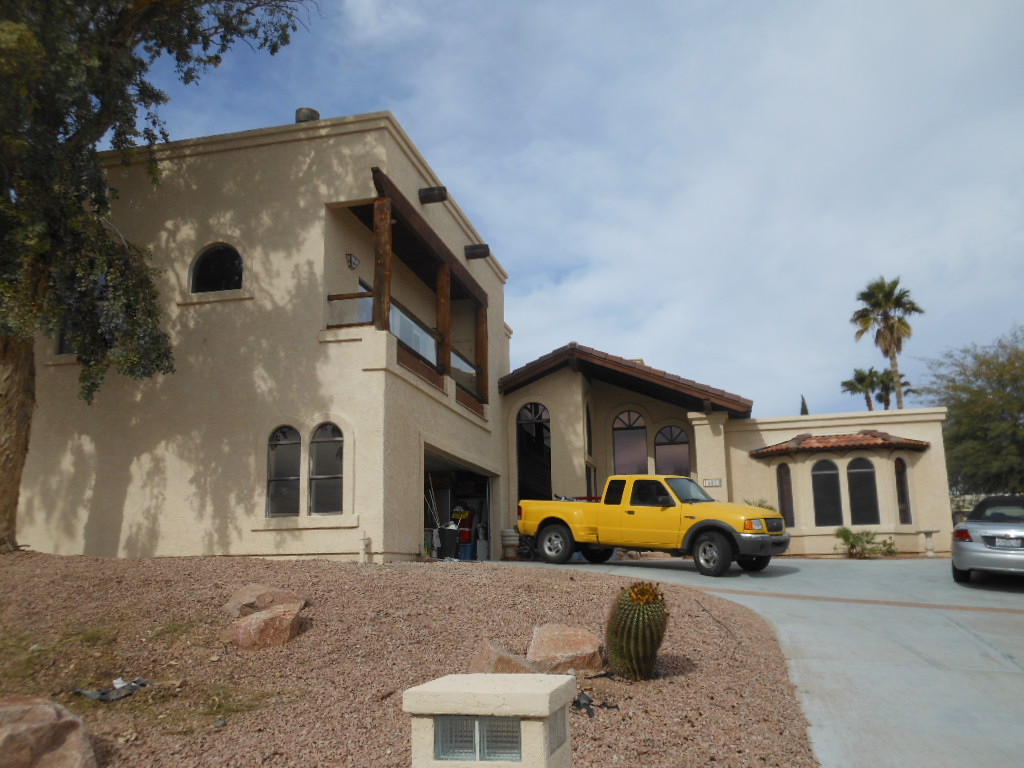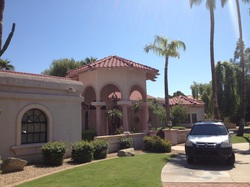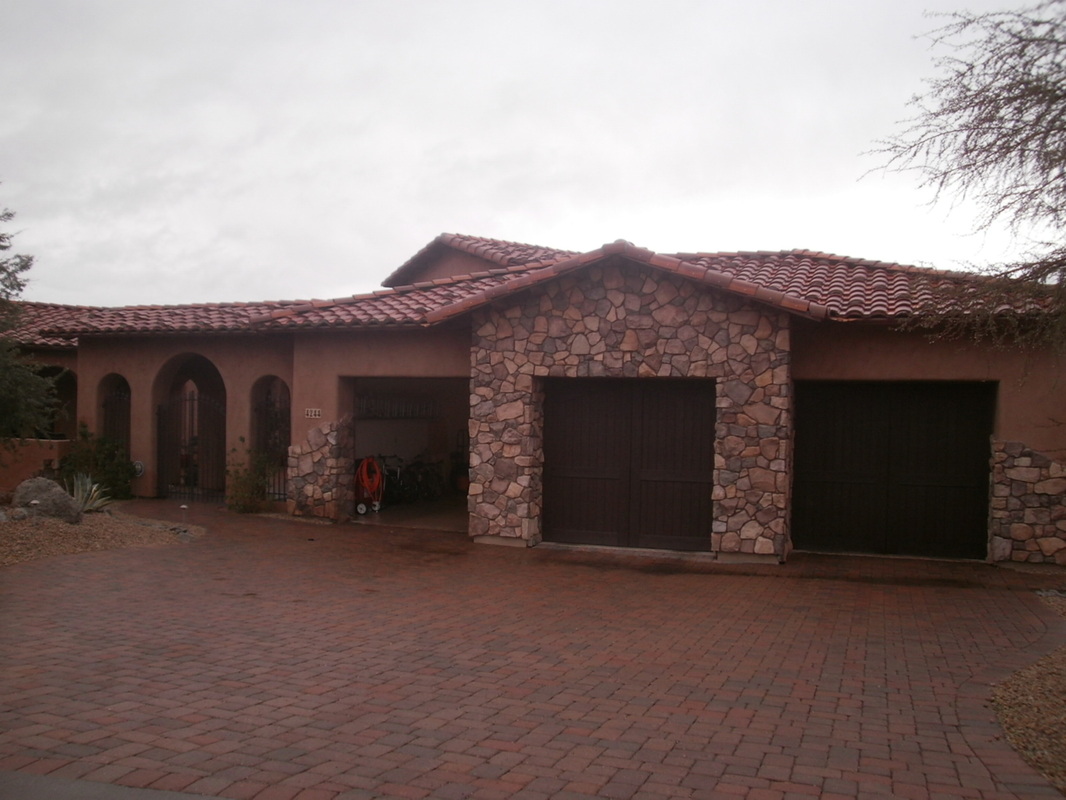|
Watch out if you own a ranch style home with a packaged heat pump or gas pack on the roof. A common HVAC contractor mistake was to install the wrong type of elbow on the roof. An elbow is the curved piece of sheet metal between the heating and cooling system and the ductwork in the attic. The different types of elbows, in order of worst to best, are outlined below. 1. Over-under elbow. Over-under elbows are worst type of elbow HVAC contractors can install. These were originally installed on ranch style homes and are still sitting on roofs today even with brand new AC units! The problem with these sheet metal elbows is that they reduce in size when going into the roof and choke the air off to and from the HVAC system. This causes major restrictions to the airflow, making the heat pump work harder and shortening it's useful life. The good news is that over-under elbows can be changed without having to replace the heating and cooling system. 2. Down draft. Down draft elbows are better than over-under elbows because the limited amount of exposed metal, especially in the hot Phoenix sun. However, the down sides outweigh the benefit of the reduced heat gain. The main downside is that the down draft elbow is also still restrictive to airflow (are you beginning to see a pattern here?). Having those restrictions will make a 5 ton heat pump only give 4 tons of air! During our energy audits we measure the amount of airflow restrictions in the duct system and time and time again we find these types of elbows highly restrictive. 3. Side-by-side. Even though side by side elbows have more area exposed to the sun and have more heat gain (yes they are insulated), the restriction is far less than the down draft elbow so the AC unit doesn't have to work as hard. That also means that a 5 ton heat pump will deliver 5 tons of air through the elbow! HVAC contractors need to be a little more experienced when installing side by side elbows because there are a few more measurements needed but it is worth the extra effort.
9 Comments
One of the easiest checks homeowners can do without the advice of an energy auditor is to make sure the right air filters are used. When it comes to keeping your HVAC system maintained, nothing is more important or easier than making sure your filters get changed out every month or two. During our home energy audits we can show how dirty, neglected filters have real affects on your AC system that end up costing you more in repairs and early replacement down the road than if they were changed regularly. When the air filter gets dirty it becomes restrictive to airflow passing through it, so your unit needs to work harder to "breath in." This puts stress on the small components like the capacitor and can cause them to run on a higher amperage, costing you more to run. Restrictive airflow can also cause your outside condenser coils to freeze over, creating a ice block over the coils and cause your HVAC unit to blow warm air in the summer. Dirty filters also allow more dust and crap past the filter and to build up on the indoor evaporator coil. This lowers the efficiency of the heating and cooling system, costing you more money and not making you as comfortable as a properly operating unit would. There are several types of air filters for your heat pump or furnace. Unfortunately, the kind most homeowners use is the most damaging to the AC system. However, as long as they are changed regularly, about every 2-3 months, you are still ahead of the curve. These filters are promoted as allergen reducing filters and have a 1" pleat or rib. The little known downside to them is that with only 1" of surface area, the heat pump or furnace will really have to work hard to suck air past the filter. Have you ever tried to breath through only one straw? That's what is happening to your AC system every time it's turning on with the 1" pleated filters.
We recommend using the cheap throw away filters because of the low airflow restriction. Your heat pump or furnace has to work a lot less to breath in and get the full capacity of air past the cooling coils. The only downside is that the cheap throw away filters do not catch as many airborne particles as the 1" pleated filter. If you are looking for the ideal filter that does both, capture airborne particles and doesn't put the heat pump or furnace under a lot of stress, look for the 4" HEPA filter. So what filters are the best? We love the 4" HEPA filters because it filters the dust and allergens better than either of the other filters plus it allows maximum airflow to pass through it, not stressing the AC system. The HEPA filters are becoming more commonly found at your local Home Depot or Lowes and they only need to be changed every 3 months. The only downside is that they are more expensive than the 1" pleated filters, but not that much more. It's best to take the advice of thousands of energy auditors and heat pump contractors and make change to HEPA air filters. Related posts: Have hot rooms? Here are the main reasons why your rooms are hot in the summer. Thinking of having an energy audit one on your home? Here's what to look for in an energy auditor. Lower your energy bills with a water heater timer. APS utility rates double during peak hours in the summer. SRP energy rates almost double during peak summer hours. This water heater timer shown by energy auditor David Byrnes of Green ID can turn off during peak hours, saving valuable kWhs. In Phoenix, it's impossible to get cold water during the summer anyways so why waste energy with your water heater. Save money and live happy with Green ID. You may have heard your AC technician talk about installing a hard start kit on your HVAC unit and dismissed it as an unnecessary add on. Are hard start kits a scam? The truth is that hard start kits actually help your heating and cooling unit, unlike some HVAC products. The problem is that most AC technicians aren't educated enough or understand how they work.
Hard start kits work to protect the heart of your heating and cooling unit, the compressor. The compressor is like the heart of your AC system, pumping out refrigerant at a high enough pressure for it to work its magic and keep us comfortable. Every time the compressor starts, it has to move a large amount of refrigerant through the system. The defect with all lower efficiency AC units is when they turn on the compressor has to work extra hard to start. Imagine riding a bike up a hill, once you are moving, to keep moving isn't too hard but starting from a dead stop takes a lot more effort. That's what's happening every time our air conditioners turn on, they are starting from a dead stop and it wears down the compressors. The hard start kit gives the compressor a friendly push from behind on every start so it doesn't have to work as much, and saves the compressor over time. It allows the compressor to start faster and takes less energy to operate. Replacing a compressor isn't cheap and can be the most expensive replacement short of replacing your entire system. By taking care of it during its life, you will extend the life of your heating and cooling system and lower your energy bills along the way. A hard start kit with a good run capacitor can reduce the inrush of energy usage by as much as 50%! Keeping the heart of your heating and cooling unit protected also protects the other components as well which leads to less maintenance down the road. The more an AC technician understands about your system the more efficiently it can potentially operate. |
Sign Up For Your Home Energy AuditFIND YOUR HOME TYPERanch HomesSingle Story, Spec HomesTwo Story, Spec HomesTri-Level HomesPre-1990 Custom HomePost-1990 Custom HomeDon't See Your Home? Find Your City Below!Archives
April 2024
Copyright Notice©2009 – 2023
All Rights Reserved |


